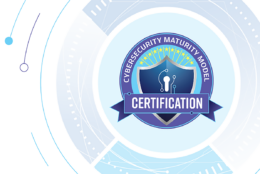
HHS new contract writing system testing more than an innovative technology approach
Jose Arrieta, chief information officer at HHS, said the Accelerate platform will take data from the five current contract writing systems and add microservices...
In early fiscal 2020, the Department of Health and Human Services will pilot its new contracting writing system called Accelerate.
HHS will work with a small group of contracting officers and industry to prove that using the cloud and blockchain technology is not only possible, but real.
Jose Arrieta, who is currently the chief information officer and was the acting deputy assistant secretary for grants, acquisition policy and accountability at HHS, said the agency has made a lot of progress since December when the Accelerate platform received the authority to operate.
The grants, acquisition policy and accountability office has been testing the ability of the system to take in actual data from the five contract writing systems HHS uses as well as the analytics for prices paid and terms and conditions and refining the microservices that they built to better communicate with program managers.

Everything Arrieta’s old office has been doing since December is building toward that pilot.
“We want them to go through the entire workflow and see how it works, see how it could be better and see how information could be displayed better,” Arrieta said on Ask the CIO. “Then our goal is by toward the end of January 2020 is to cut those users over and fully use Accelerate.”
Then over time, HHS will continue to evolve Accelerate based on user’s needs and eventually decommission at least two of the contract writing systems and provide access to Accelerate to the more than 2,000 contracting officers and specialist.
Arrieta said Accelerate will not just modernize the agency’s approach to contracting writing, but become a living system where the acquisition workforce can make suggestions and changes happen in a matter of weeks.
“When we say we are doing testing, we are actually making it more intuitive so it aligns with how the contracting officers, program officials and industry partners how they think and how they want to interact with the capability,” he said. “We are making the capability more intuitive so that it’s easier to use for the contracting officers. So when we change and cut over to the system, they sit down and know what to do.”
Additionally, Arrieta said if other HHS offices are not interested in moving to the contracting writing platform, they can still take advantage of the tools Accelerate will offer, which includes analysis of more than $24.2 billion in spending, 100,000 contacts, terms and conditions and prices paid data, through an application programming interface (API).
Related Stories

For FDA, blockchain means faster ID management and safer mangoes
Developing a contracting writing systems with microservices and APIs to pull together data in and of itself is not what makes Accelerate innovative. It’s the technology that underlies the data that makes Accelerate more than your typical contract writing system.
Arrieta is using blockchain or distributed ledger technology to ensure the data is valid and consistent. He said this technology is more than just a buzzword or just something futurists like to talk about.
Arrieta said the stock exchanges in Hong Kong, London and Australia all use blockchain, and BMW, Walmart, Microsoft and IBM all are using this technology to secure their supply chains and other internal operations.
“For us the reason why we decided to use blockchain was we wanted to create an ability to digitize data, to index data in an immutable fashion and to share it across an ecosystem. Whether that data was acquisition data or human resources data, we wanted to create a flexible capability to share it,” he said. “We wanted to separate the business process from the data itself. We didn’t want a system where the data existed in the workflow, which increases your costs for transition later on.”
He said the blockchain technology also helps HHS secure the data because users have to have an encrypted key to access the information, and the microservices are separate from data and only reaches back for the data when someone performs that specific function.
Latest Technology News
Michael McFarland, the director of office of acquisition business systems at HHS, said the data will improve as more contracting officers and program mangers use it.
McFarland said then HHS can put in place some policies about how data is put into the system to standardize and reduce the burden.
“I would encourage people to look at what the new technologies and agile processes are capable of. It opens up a lot of abilities when you get out of the paradigm of looking at something for two years, look at requirements, put out RFP, take in proposals, pick one, and then build something for two years before showing it to the workforce for testing. It has been an education for the workforce and it’s been very interesting as they start to realize we are building it as they are doing and it makes it more responsive,” he said.
Arrieta added that the approach with Acclerate is letting the acquisition workforce shape their future, change the way they think about their mission and their job.
Copyright © 2024 Federal News Network. All rights reserved. This website is not intended for users located within the European Economic Area.
Jason Miller is executive editor of Federal News Network and directs news coverage on the people, policy and programs of the federal government.
Follow @jmillerWFED









